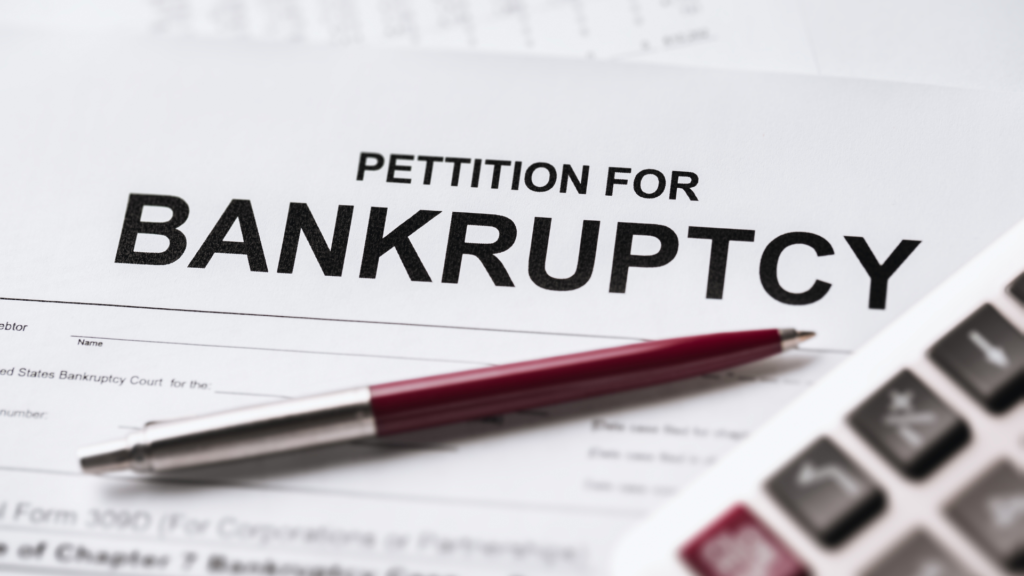When a business goes bankrupt, it can have a major impact on the entire community. As a business owner, you may be wondering what bankruptcy means for your company, and whether or not it’s something you should consider. You may try and get ahead of the bankruptcy by selling your business, as it can be difficult to do after the fact. So your best bet is to go online and look into a “sell my business broker” for instance, who can talk you through the step by step process.
In this blog post, we’ll discuss some of the key impacts bankruptcy can have on businesses, and how best to prepare for them.
What is a business?
A business can go bankrupt for a variety of reasons, but one of the most common is when it cannot pay its debts. The creditors may be financial institutions, suppliers, or employees. When a business goes bankrupt, it may have to sell assets (like land or buildings) to repay its creditors. It may also have to give up ownership of valuable assets (like intellectual property).
When a business goes bankrupt, it can’t continue to operate and may have to shut down. This can have a significant impact on the employees who work for the company and the customers who use its products or services. The consequences of bankruptcy can be serious for businesses of all sizes. Small businesses may experience more financial problems than large businesses, but they also tend to face greater impacts from bankruptcy. For example, small businesses are more likely to go out of business entirely if they go into debt because they don’t have enough money to pay back their creditors. Large businesses usually have more resources available to them, so they can survive bankruptcy even if some of their creditors decide not to forgive their debts.
What are the causes of bankruptcy?
There are many different causes of bankruptcy, but most stem from problems with the finances of a business. A lack of cash flow can lead to debt issues, which in turn can lead to bankruptcy if the company can’t pay its bills.
Other common causes of bankruptcy include overspending on projects or acquisitions, poor management decisions, and fraud. In some cases, a business may file for bankruptcy simply because it can’t compete with other businesses that have better financial prospects. In other cases, a company may go bankrupt because it was hit by a natural disaster or another unforeseen event that caused major financial problems.
How does bankruptcy affect businesses?
In the United States, bankruptcy is a legal process by which a person can declare themselves insolvent and seek relief from their creditors. This relief can include a reduction in the amount of debt that the debtor owes, an agreement to pay back debts over time, or complete forgiveness of all debts.
There are a few important things to note about bankruptcy and business:
- First and foremost, bankruptcy will affect businesses in two main ways: First, it will change the terms of any existing loans or credit agreements that the business has with lenders or creditors. Second, it will often result in the termination of contracts with customers and suppliers.
- Secondly, bankruptcy can have serious impacts on a business’s future prospects. The fact that a company is now carrying more debt than it can repay puts it at significant risk of going out of business.
- In addition, many banks and other lending institutions are unwilling to provide financing to companies that are currently subject to court-ordered financial restructuring or Chapter 11 bankruptcy proceedings. This means that businesses typically face significant delays in getting new loans approved after they go through bankruptcy proceedings.
- Lastly, it is important to keep in mind that not all bankruptcy proceedings result in negative consequences for businesses.
In fact, there are some cases where businesses emerge from bankruptcy stronger than before – thanks largely to the lessons learned during their difficult period.
What are the consequences for a business after bankruptcy?
In the United States, bankruptcy is a legal process by which a person can overcome financial difficulty and restore their ability to meet their debts. In order to qualify for bankruptcy, individuals must meet certain requirements, including having a debt that exceeds their income.
The effects of bankruptcy on businesses vary depending on the type of business and the size of the company. The most common consequence of bankruptcy for businesses is that they lose customers. Many people who are in debt avoid doing business with companies that have filed for bankruptcy because they fear that these companies will not be able to repay them. This can lead to a decline in revenue and an overall decrease in the size of the company.
Another consequence of bankruptcy for businesses is an increase in employee turnover. Many people who are laid off or who are considering filing for bankruptcy may look for work elsewhere if they know that their company is also filing for bankruptcy. This can lead to a loss of experienced employees and a decreased level of productivity within the company.
Finally, another common consequence of bankruptcy for businesses is an increase in costs. This occurs because many companies file for Chapter 11 bankruptcy due to high levels of debt, which makes it difficult to operate as usual. This can lead to higher prices for goods and services, as well as increased taxes necessary to cover the costs associated with this type of litigation.
How to avoid bankruptcy
If you are a business owner and are facing bankruptcy, there are some important things to keep in mind. First, bankruptcy will affect your business in a number of ways. For example, it can cause your assets to be frozen, which may prevent you from obtaining loans or selling your business. It can also lead to garnishment of your wages, making it difficult to pay your bills or make ends meet. Additionally, bankruptcy can impact your credit score and make it more difficult to get loans in the future.
To lessen the impact of bankruptcy on your business, start by working closely with your chief financial officer, or if you don’t have one, consider hiring a fractional CFO. They can assess your current situation and develop a plan to protect your assets. Plus, they can advise on keeping track of all the bills that need to be paid. This will likely help reduce the amount of money that needs to be used from your assets during the bankruptcy process.
How to prepare for bankruptcy
If you are considering bankruptcy, there are a few things you need to do in order to prepare. First, make sure that your business is in good financial shape. If it isn’t, filing for bankruptcy may be the best option for you. Second, be prepared to answer questions from creditors and the bankruptcy trustee. Finally, gather any documents related to your business, such as contracts and financial statements.

